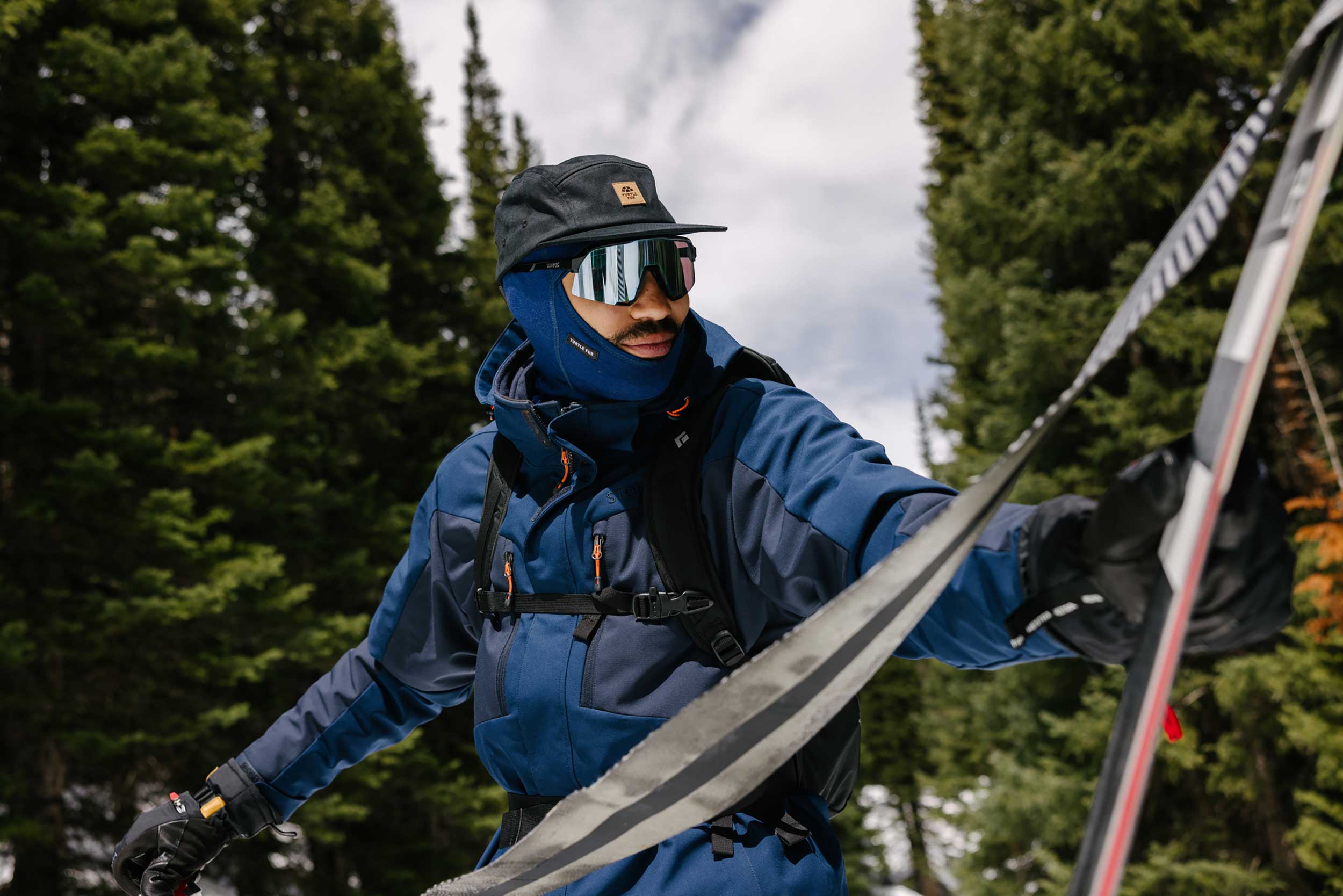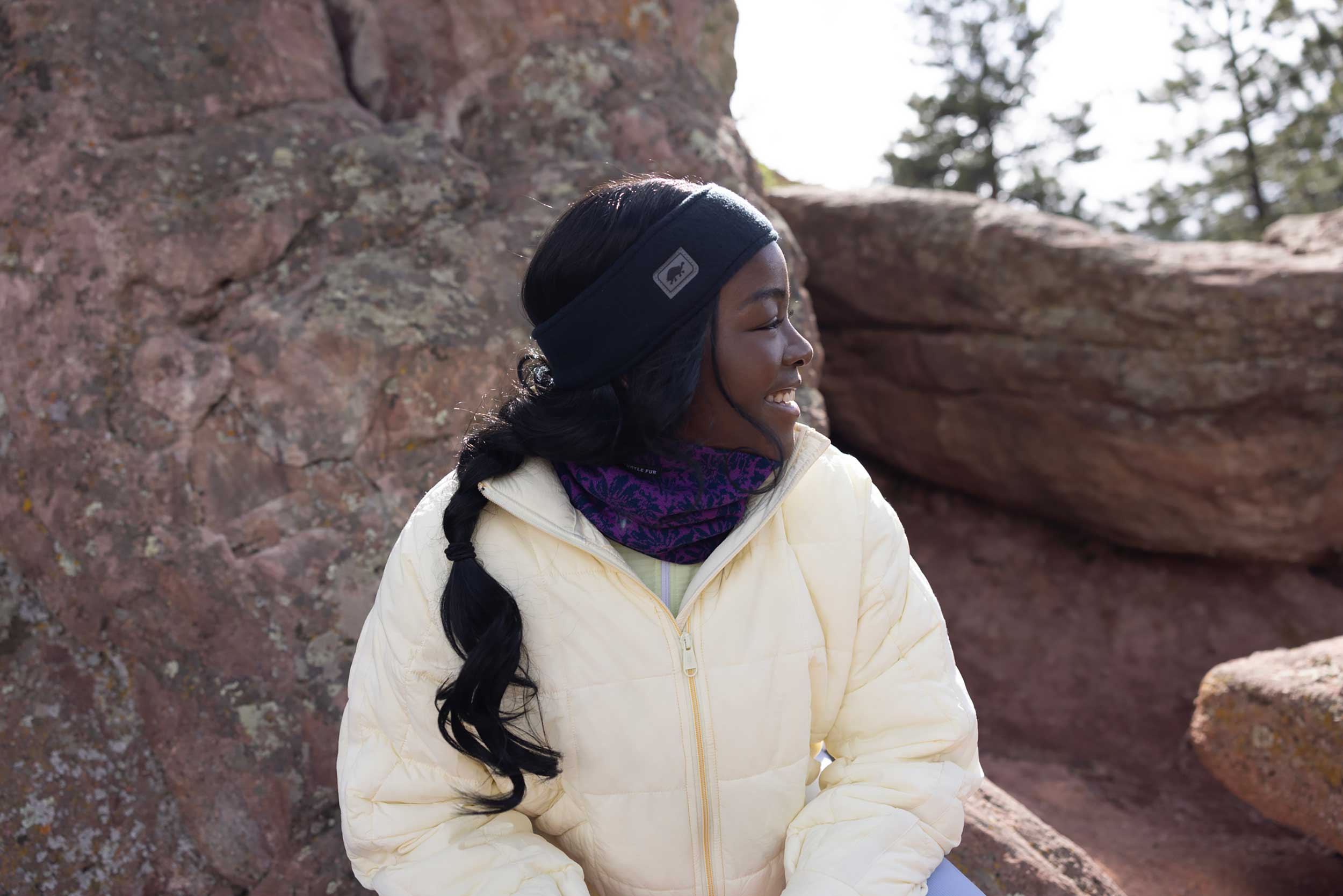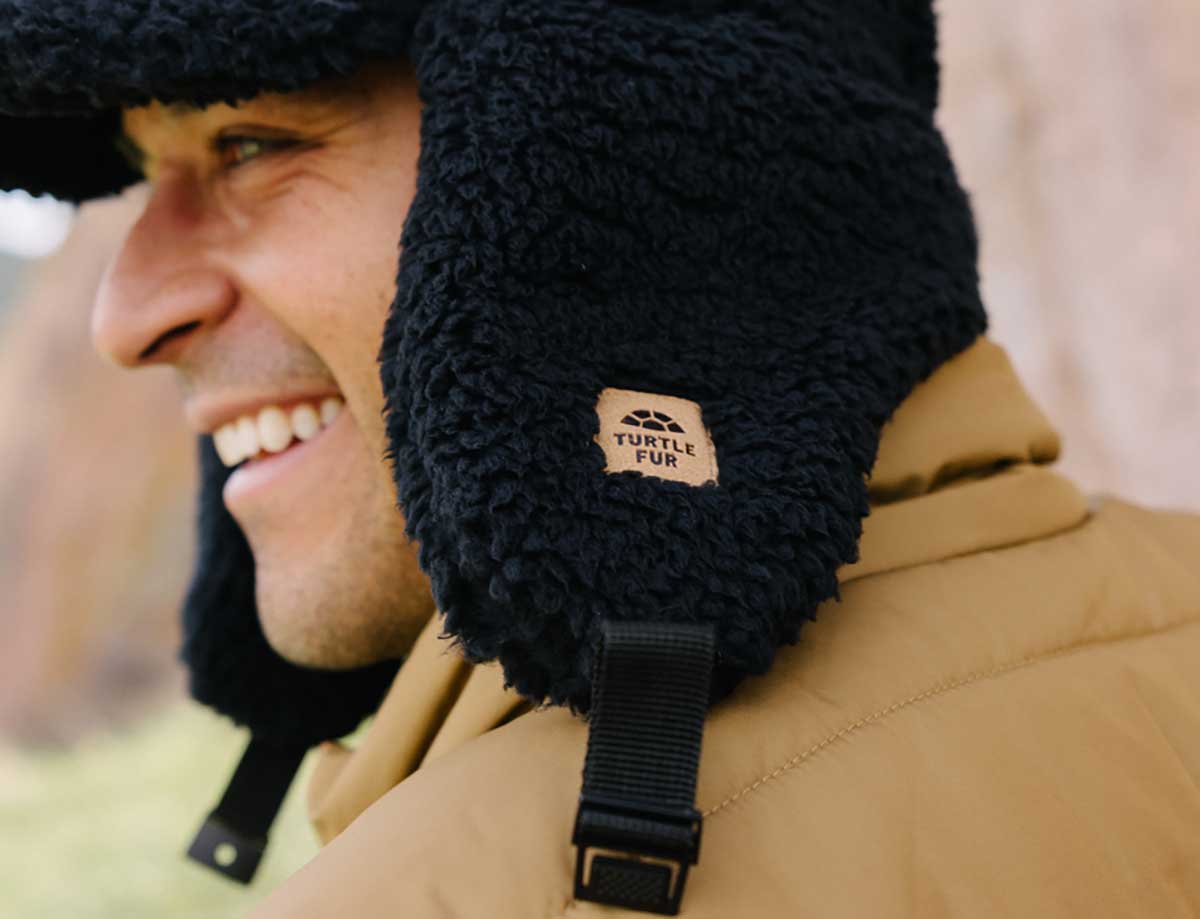
Image by Turtle Fur
The Vermont-based clothing brand aims to be louder and prouder in the market to promote business as a force for good.
Born on the ski slopes of Vermont, yet versatile and capable enough to be donned by the Wu-Tang Clan during their Vegas residency, outdoor headwear and accessories brand Turtle Fur launched a rebrand on Thursday. The initiative ushers in a new logo, new website, new storytelling, and a renewed mission to connect with and expand its audience.
“Our main target has primarily been a ski consumer over the past 40 plus years. And we love that niche,” said Erika Canfield, vice president of marketing at Turtle Fur. “One thing that is really appealing to me joining is that we have so much consumer love. The people who know us really love the brand. …
“But that said, we have a very small audience, so our opportunity is really growing and expanding our consumer base,” she said.
That means going beyond Turtle Fur’s winter-centric origins and embracing people (and families) who enjoy the outdoors in spring and summer as much as during winter. It also means expanding its approach to winter sports, so that people who love snowmobiling, winter trail running or cold-weather hiking are more able to discover the brand.

Image by Turtle Fur
The campaign has become a natural extension of where the company began.
Turtle Fur was founded in Stowe in 1982 by a single mom and skier, Millie Merril, who essentially invented the fleece neck warmer after collaborating with Polartec to fine-tune the materials. It was a welcome replacement for unwieldy scarves that distracted and frustrated skiers of that era.
Product work began out of a kids’ clothing store Merril owned called Yellow Turtle, which exists to this day and became the inspiration for the Turtle Fur band name. Merrill, now in her 80s, had embraced the grind of those early days and had a kind of dynamic charisma that drew people in — she was a natural salesperson.
That level of engagement in the community and at trade shows allowed the Turtle Fur brand to take off.
Over the years, Turtle Fur has added various types of performance and lifestyle headwear and neckwear — among the newest are the Comfort Ice Tube, made of a perforated recycled fabric that feels silky to the touch, and the Comfort Shade Tube, which has a softer material that also wonderfully wicks sweat away. Recently, Turtle Fur has added both durable and performance five-panel hats and trucker hats, along with earmuffs, vests, and gloves to the lineup.
This broadening product array helps plant the seeds for the new branding, known as Step Outside Your Shell, which is aimed at celebrating Turtle Fur’s roots of moxie, grit, curiosity, adventure and kinship in the outdoors.
It “weaves together our heritage with our future,” Canfield explained.

Image by Turtle Fur
Most visually noticeable in the rebranding is the new logo, which aims to capture the company’s forward-facing look and feel. The design is obviously a turtle shell, with yellow being the featured color, harking back to the Merrill’s original store name. The shape of the new logo speaks to the idea of protection from the elements and a sense of social support, while the negative space conjures a sense of a sunrise or a sunset.
“It’s the idea of wearing us from dawn to dusk, because comfort is a core part of what we provide,” Canfield said. “So, things have to be comfortable enough that you want to wear them all day long.”
In addition to product materials and stylings, the social aspects of the company are going to be an increasing factor moving forward.

Image by Turtle Fur
In recent years, Turtle Fur has redefined its company culture in exciting and important ways. For example, Meghan Ksiazek, vice president of product and ESG, steered the company toward certification as a B Corp, fundamentally initiating a change throughout the whole company. The goal has been to think more sustainability and explore ways to use business as a force for good — where the environment, employees and social and climate justice become baked into the brand DNA.
“Everyone here really deeply cares, and there were a lot of passionate people who wanted to make a difference,” Ksiazek said. “Every department has a responsibility to contribute.”
She said Turtle Fur has worked to consolidate shipping and almost never uses printer paper anymore (there is even a company report that meticulously tracks usage). Also, Turtle Fur gets its pallets from another company locally, so there is a notable effort toward identifying recycling opportunities.
Vendors that Turtle Fur works with are extensively questioned about the inner workings of their factories and how their employees are treated.
This plays into Turtle Fur’s definition of sustainability, which Ksiazek describes as “all about being responsible” and keeping conversations going. Because when it comes to outdoors products, they are often created through the lens of balance — the need to be profitable but also sustainable and driven to do good.
“We have to ask: How can we be more responsible to the planet and to the people within it?,” she said. “That ripples down to all of our DEI work, because social justice is climate justice. When you ask who is affected most by these things when we choose to be irresponsible with our resources and with our planet, it’s always the people who don’t have the means to be able to buy their way out of the situation that are punished the most.”

Image by Turtle Fur
The support that Turtle Fur provides extends to mental health advocacy and the benefits of being outside. It’s something that is strongly backed by research and will be a central part of what the brand will be addressing in coming seasons.
“The fact that getting outside, whether it’s your city park, whether walking through your neighborhood, or whether you’re thru-hiking to AT or you’re an all-year skier, we meet you wherever you are in terms of your outdoor experience,” Ksiazek said. “We truly believe and promote that being outdoors and being in nature has a positive effect on physical health, but then also mental health.”
Part of this is achieved through partnerships, which are led by Tori Reynolds, senior brand marketing manager. Turtle Fur does major product donations to the Share Winter Foundation, a Northeast-based organization that helps to get youth connected to winter sports and keep them engaged year-long.
There is also a partnership with Vermont Adaptive, which works nationwide to get youth and adults with disabilities on the mountain regardless of financial means. Turtle Fur supplies winter gear to them and does direct financial contributions. In fact, Turtle Fur gives 2 percent of its annual revenue back through donations.
These partnerships are an extension of the brand’s Project Warmth initiative, which began in 2008 to reach those in need and in marginalized communities. There is a form on the website where people can make donation suggestions, such as local shelters or schools, to receive Turtle Fur gear, particularly in the cold months.
“We’ve had some really amazing, beautiful stories come out of that on social media, which is really cool,” Reynolds explained. “There’s a tag on every product that goes out, encouraging people to participate. We also have a social initiative where if people post themselves wearing a Turtle Fur product and use the hashtag #projectwarmth, we’ll see it and donate an item.”

Image by Turtle Fur
All of this helps in growing the reach of the Turtle Fur name. Last year, the Wu-Tang Clan’s stylist even found the brand through a Google search, and Turtle Fur wound up providing Wu-Tang with balaclavas and headwear during their Vegas residency. Currently, the company has a robust online business and has found a spot in major retailers — such as REI, Dick’s and Public Lands — as well as smaller specialty retailers. The brand has a deep partnership with Vail Resorts, so Turtle Fur is readily found there too.
And as the company adds new pieces, continues to explore innovative fibers (yak, anyone?), upcycles polyesters and other materials and invests more prominently in positive messaging, Turtle Fur helps to showcase how outdoor businesses can do their part as a force for good.
“Every year we increase our sustainable inputs on the product side,” Ksiazek said. “That’s a huge initiative that I drive through constantly, and this year will be closer than ever to getting to that 100 percent mark.
“There’s a choice that has to be made, and if we can choose the more responsible one, then we’ll do better at the end of the day.”
Ryan Tipps is Managing Editor for ActionHub. He lives along the Blue Ridge Mountains, is an avid hiker, backpacker and trail runner and has been a part of the wilderness search and rescue community since 2005.
 Your Privacy Choices
Your Privacy Choices